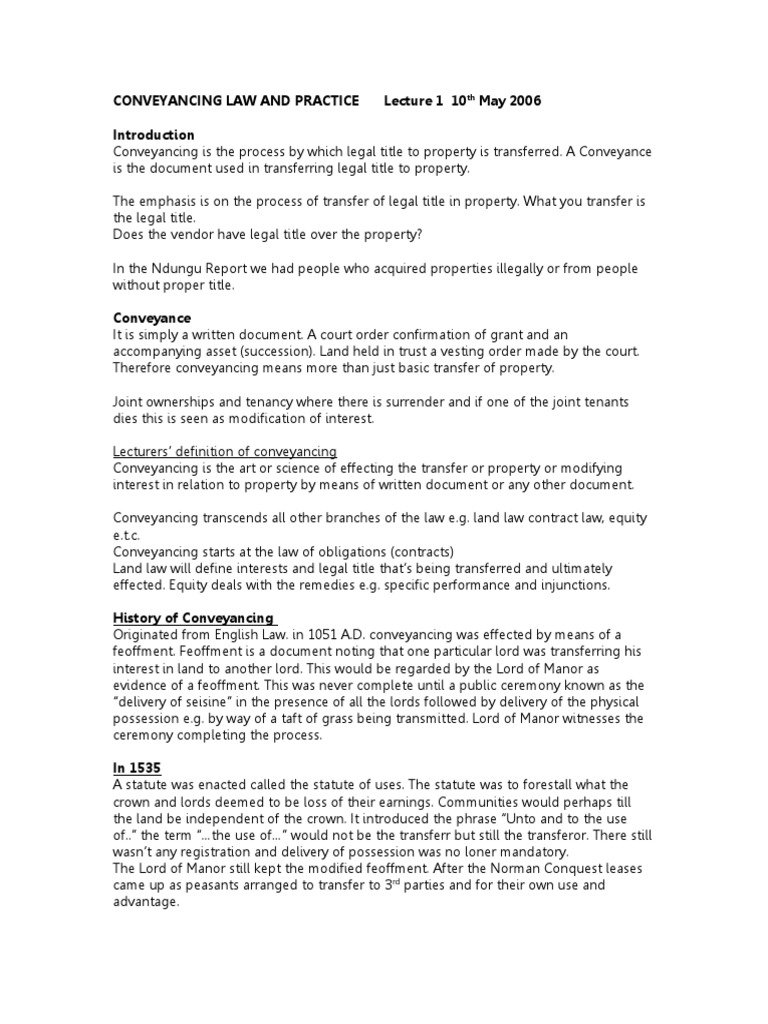A normal conveyancing trade will have two chief phases: contract completion and the exchange of contracts. The conveyancing lawyer will draft the essential documentation and act as the go-between for the parties. However, it’s important that you understand how the conveyancing process works so which you can get involved and help protect your interest in your house or investment property.
Conveyancing Definition

Just what is a conveyancing? In its most basic form, a conveyancing is a arrangement where a couple of parties enter into a contract that names a”successor trustee” into the original contract. The objective of this is to create a third party to assume accountability for the property, including any debts or obligations that would arise in the event of the contract termination. When you hire a conveyancer Melbourne to help complete the paperwork, he or she will also prepare and file all the necessary legal forms to the proceeding. In addition, the conveyancer will function as the go-between for both the parties and manage the contract settlement and signing. It is essential that you understand and thoroughly comprehend the role which the conveyancer will finally have. In law, conveyancer Melbourne is simply the process of this transfer of legal ownership of property from one to another, usually with the aid of a lawyer or a licensed conveyancer.
Conveyancing Definition
In order to secure yourself against unnecessary flaws in the procedure, you should hire an experienced, dependable and fair conveyancer. As you might feel drawn to choose an inexperienced or unprofessional conveyancer, do so at your own risk. There are many ethical standards that require a professional and capable conveyancer to properly execute these complex transactions. In case you decide to go for an unprofessional, however, the results could prove expensive and ultimately catastrophic to you.
There are several distinct sorts of conveyancers in the market. Conveyancers can include both individuals and firms. Some general conveyancing forms are estate agents, property traders, and property agents. Additionally, there are locum conveyancers that handle locum jobs or temporary assignments for companies.
The most significant type of conveyance is the real estate representative. A real estate broker represents the seller of a house. In this capacity, they negotiate the contract, collect payments, and maintain accurate records. Conveyancers who work in this capacity has to be licensed by the Office of the Receiver General or the Appraisal Institute. This ensures that these professionals are trained and able to handle a vast range of transactions.
A property dealer is another sort of conveyance. They generally work directly with the sellers of possessions but may occasionally consult with the property owners. In this capacity, they execute the contracts for both buyer and seller. Conveyancers who deal with this type of transaction must be licensed by the Appraisal Institute.
A broker is a type of conveyancer who is independent and does not represent either the buyer or seller. This is the most common position for this particular professional. Brokers need to be licensed by the Texas Department of Licensing.
Among the most vexing areas of the definition of a conveyancer is the simple fact that there can be more than 1 type. These three classifications, but are the most commonly seen. Any sort of conveyance that satisfies all these demands is lawfully allowed to do business in Texas. This helps to protect the customer from being ripped off with a disreputable business. When in doubt, always check with your local Better Business Bureau or your state attorney general to ensure that any company you choose is above board.
A contract conveyancer is not the same circumstance. This is the type of person that is actually contracted by the buyer and seller to carry out the transaction. A contract conveyancer does not actually finish the contract, but rather , they act as the go between for the two parties. Conveyancers are accredited through the Texas Department of Licensing.
In order to protect both the property buyer and seller, a contract conveyancer should always charge a reasonable fee. Conveyancing lawyers (like every other lawyer) will argue that they are exempt from fees since the transaction is exempt from the nation’s laws. This is false, however, and should always be discussed in fantastic detail before any contract is signed. You may even find a licensed conveyancer prevents charges because they know that they will be personally liable if the transaction is not completed correctly.
So what is the next step? If you’ve been thinking about becoming a conveyancer, then you ought to look to all the necessary areas of this job. Learning all that you can about the definition of conveyancing will be quite useful for your comprehension as a law school student. It could even open up some other livelihood choices that you hadn’t initially believed. It is also an excellent career choice if you happen to enjoy law.
